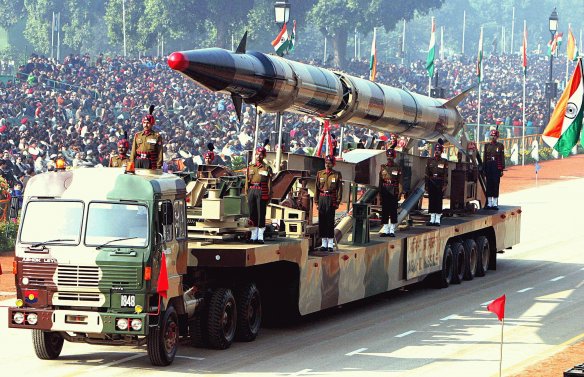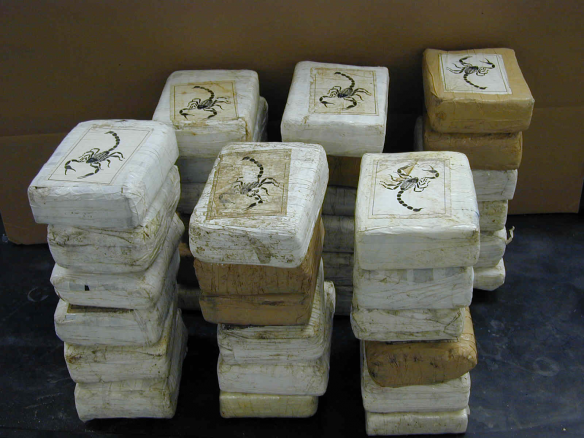India’s Nuclear Policy has been the subject of debate for many decades now. A non-signatory to the Nuclear Non Proliferation Treaty, the country has pursued an atomic bomb amid regional tensions and precarious relations with its neighbors. India has also used its nuclear weapon to bolster its national identity tied to the concept of ‘security’.

An Indian Agni-II intermediate range ballistic missile on a road-mobile launcher, displayed at the Republic Day Parade on New Delhi’s Rajpath, January 26, 2004. Photo: Antônio Milena
Despite all this, the state has been provided tacit support for its nuclear program and given back door entry into the Nuclear Suppliers Group. As a recognized nuclear weapons state, India has been integrated economically as well as politically into the international system.This text explores the different facets of India’s nuclear behavior that provide explanations for the special status the state has received.Read More

 Despite the strong growth of the humanitarian sector, there is an increasing operational and financial deficit in the capacity of governments and humanitarian organizations to respond. This has led to calls for changes in the way such crises are understood and managed. As humanitarians grapple with what is increasingly imagined as a future of permanent emergencies, the promise of cooperation has taken center stage as a way of dealing with an uncertain future. Humanitarianism has a long history of trying to improve itself incrementally through best practice examples, ever more fine-grained standards, and reforms. As humanitarian actors undertake periodic renewal projects to look and feel better and be seen as more credible and more legitimate, talk of the need for a paradigm shift has become an institutionalized feature of contemporary humanitarianism. Presently, the focus is on the ability of humanitarianism to shift into a modus operandi of continuous crisis management.
Despite the strong growth of the humanitarian sector, there is an increasing operational and financial deficit in the capacity of governments and humanitarian organizations to respond. This has led to calls for changes in the way such crises are understood and managed. As humanitarians grapple with what is increasingly imagined as a future of permanent emergencies, the promise of cooperation has taken center stage as a way of dealing with an uncertain future. Humanitarianism has a long history of trying to improve itself incrementally through best practice examples, ever more fine-grained standards, and reforms. As humanitarian actors undertake periodic renewal projects to look and feel better and be seen as more credible and more legitimate, talk of the need for a paradigm shift has become an institutionalized feature of contemporary humanitarianism. Presently, the focus is on the ability of humanitarianism to shift into a modus operandi of continuous crisis management.